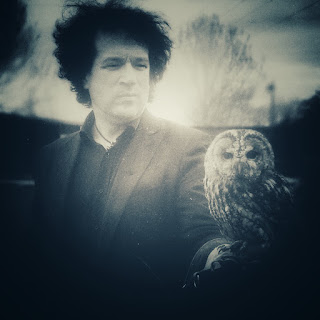Hölderlin's question - which became Heidegger's question also - wozu Dichter in dürftiger Zeit? remains, for those of us who are interested in such things, a matter of some urgency.
For in a time of fake news and a general poverty of thinking - these things characterizing our own destitution - clearly we need to acknowledge the importance of those who have the ability to attend closely and carefully to language and its limits (poets) and those who might theorize such a method of thinking in relation to the world we live in today (philosophers).
Of course, this doesn't mean we need poets to simply set the facts straight, nor signal their moral and political idealism by speaking truth to power - a cant phrase coined by Quakers in the 1950s and adopted ever since by would-be warriors of social justice and so-called activists. If I want to hear opinionated idiots express their beliefs, then I can follow them on Twitter.
Poets must never assert anything as all-knowing subjects. And poetry must free itself of any conceited humanism, becoming Machiavellian in its objective purity; sans mélange, cru, vert, dans toute sa force, dans toute son âpreté, as Nietzsche would say. We don't speak such poetry; it speaks us. And, more, it transforms the world; not through noisy direct action, but through silent deferral that opens up the possibility of Newness.
In other words, poets are not there to serve as commentators on world events - verse is not a type of flowery journalism. Their task, rather, is to provide the preliminary conditions necessary for a demonic Event: something that unfolds in time, but which is nevertheless Unzeitgemäße and Unheimlich in the sense that it comes from Outside; something which radially changes our understanding of reality and allows us to scrape off the viscous covering of doxa protecting categories of the present.
Poets, then, still have a profoundly important role to play in this era of despots and crackpots. But, alas, I sometimes think the real question we should be asking is: Wo sind die heuter Dichter?
Poets must never assert anything as all-knowing subjects. And poetry must free itself of any conceited humanism, becoming Machiavellian in its objective purity; sans mélange, cru, vert, dans toute sa force, dans toute son âpreté, as Nietzsche would say. We don't speak such poetry; it speaks us. And, more, it transforms the world; not through noisy direct action, but through silent deferral that opens up the possibility of Newness.
In other words, poets are not there to serve as commentators on world events - verse is not a type of flowery journalism. Their task, rather, is to provide the preliminary conditions necessary for a demonic Event: something that unfolds in time, but which is nevertheless Unzeitgemäße and Unheimlich in the sense that it comes from Outside; something which radially changes our understanding of reality and allows us to scrape off the viscous covering of doxa protecting categories of the present.
Poets, then, still have a profoundly important role to play in this era of despots and crackpots. But, alas, I sometimes think the real question we should be asking is: Wo sind die heuter Dichter?









